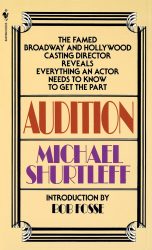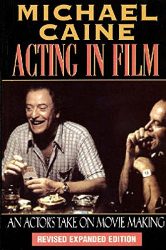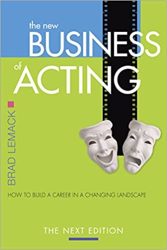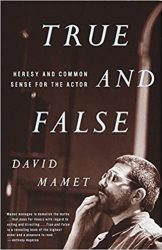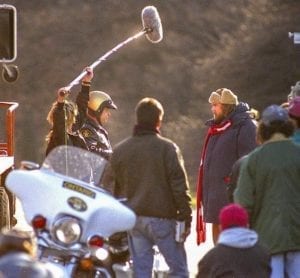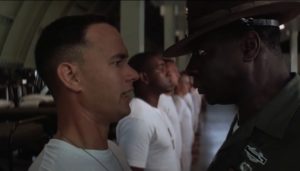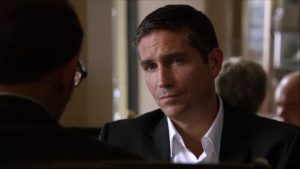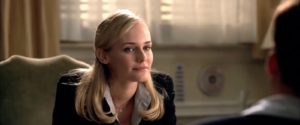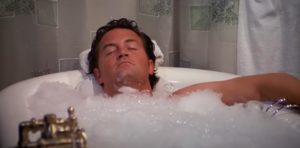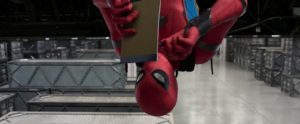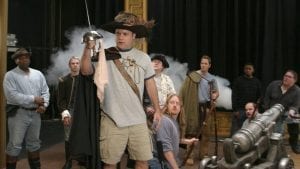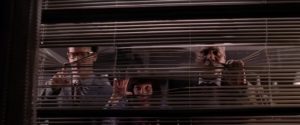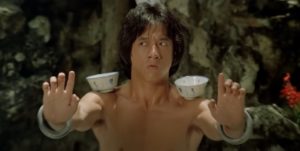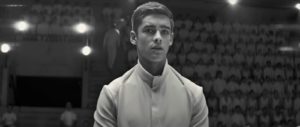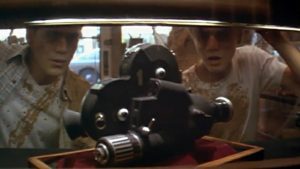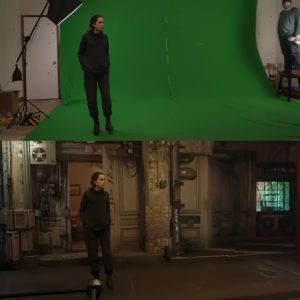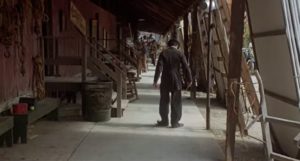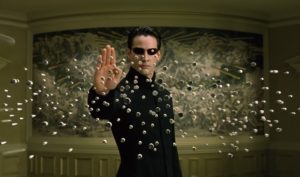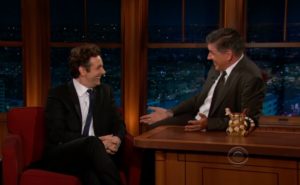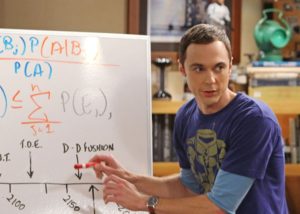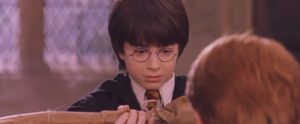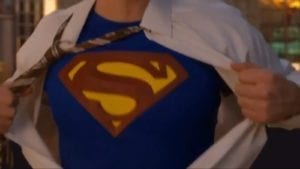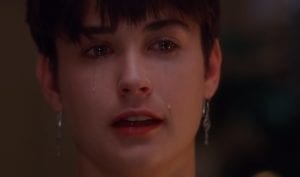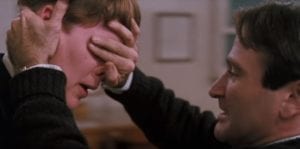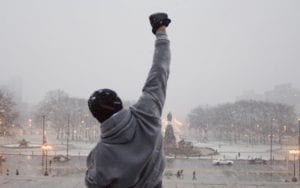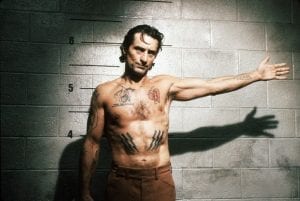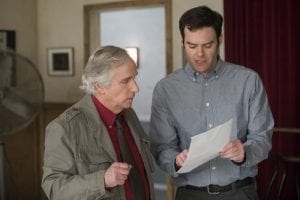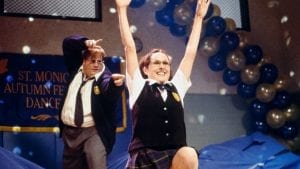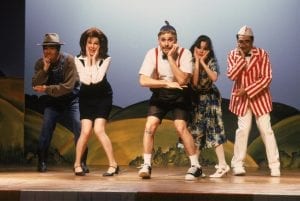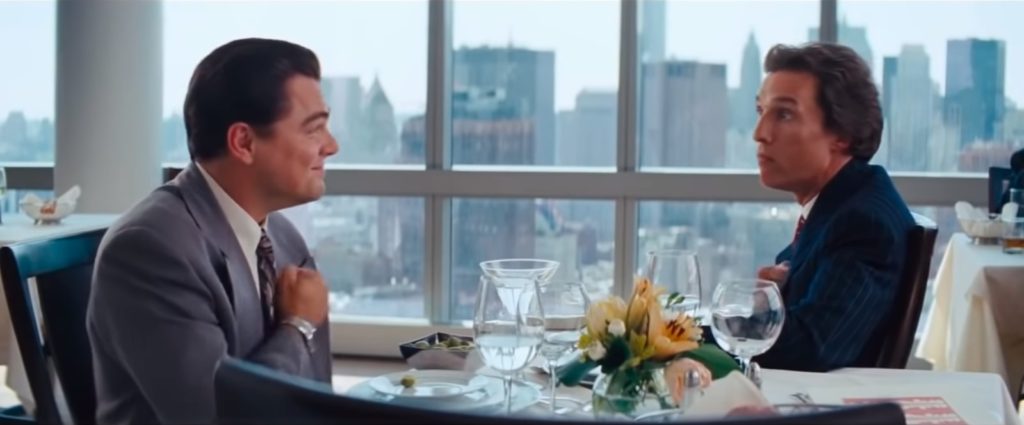
When I was starting out as an actor in high school, I remember always doing acting warm-ups and thinking they were super cheesy. When I got to be a professional actor, I really stopped doing them. However, in the past few years, I really began noticing the benefits of warm-ups.
Acting warm-ups are not a waste of time if those particular warm-ups work for you (not all warm-ups are equal). A good warm up energizes you, turning nervousness into focused energy; increases blood flow, helping you think better; and gets you into the mentality and physicality of your character.
In the interview-style article below, you can see the details about the above as well as specific examples of warm-ups that work for me and general and tips so you can develop your own warm-ups.
Are acting warm-ups worth it?
Acting warm-ups are definitely worth it if you buy into them.
As mentioned above, my opinion about them has evolved over time. It was only in the past few years that I noticed that warm-ups serve some purposes that didn’t occur to me when I first started learning.
What I’ve come to discover over time is that by increasing your heart rate and doing physical exercise, you actually bring your energy up, and that makes you think better. Also, usually nowadays, when I’m doing my acting warm-ups, I’m doing them with the scene in mind (the scene I’m about to do and that I’m warming up for). I’m mentally running the scene through. So, a lot of acting warm-ups might involve saying your lines in different ways, and with different breathing exercises and movement exercises, and I will do those warm-ups while visualizing what I’m doing in the scene, so it’s almost like mentally rehearsing alone as if I were actually performing on camera.
What do you mean by “buying into” warm-ups?
When I talk about buying into the warm-ups, I mean not feeling silly while you’re doing those acting warm-ups, actually committing to those exercises, and not feeling self-conscious.
There are tons of acting exercises and acting warm-ups you can do. If you Google “acting warm-ups” you’re going to see a kajillion YouTube videos and all you’ve got to do is find the ones where you don’t feel silly doing them.
So, for example, walking around like those dancing inflatable figures that they put outside of like car dealerships – every time I do those weird movements, I feel ridiculous. But warming up doing physical actions that I think my character would do is a good warm-up for me.
For example, if I’m playing a hitman, I will maybe do some boxing movements to get myself into that physically. If I’m playing a dad, I might pretend to fix things, like car engines and stuff like that. Or, if I’m playing an alien space technician, I might try and move a little bit like an alien.
If I were to summarize all of this, I would say find acting exercises that allow you to leverage the character you’re about to perform. As opposed to just doing a bunch of weird movements and sounds that make you feel ridiculous and silly.
You might be asking yourself, “What if feeling silly is the point?” and, “By not trying to make myself feel silly, am I not missing out and not really committing to my acting warm up?” Yeah, you may be right, and it may be that, for you, feeling silly could be the point.
Generally, feeling silly and doing movements where you pretend to be a monkey or stuff like that is the type of thing you do as a beginner actor to get yourself out of your shell, to start losing that self-consciousness so that you can perform. By the way, if you’re interested in ways to help you lose self-consciousness, check out our article on exercises to help actors feel like no one is watching.
But once you have already broken that shell and you lose self-consciousness when you’re performing, you don’t necessarily have to go back to exercises that make you feel silly.
For me, feeling ridiculous and silly just never seems to work. Every actor has their own process.
How do you know if a warm-up is working for you?
The first way that you can tell if a warm-up is working for you is if it’s waking you up so that you’re not yawning or sleeping or tired. It’s giving you energy so that you want to get on stage or in front of the camera. It makes you excited it gets your heart pumping. Which is why physical warming up can be useful.
Another way you know a warm-up is working for you if it helps you get into the character. Think back to when I said that I do warm-ups to get myself into a character. For example, for a hitman role, I might walk around the set as if I had been a military person for years and years and years. That gets me into the character, and I stay in that character right up until after I have finished performing.
In other words, you can gauge the effectiveness of an acting warm-up by seeing whether it gets you into the mentality of your character or the physicality of your character. That’s why I’m a big believer in doing warm-ups that are relevant to the part you’re about to perform.
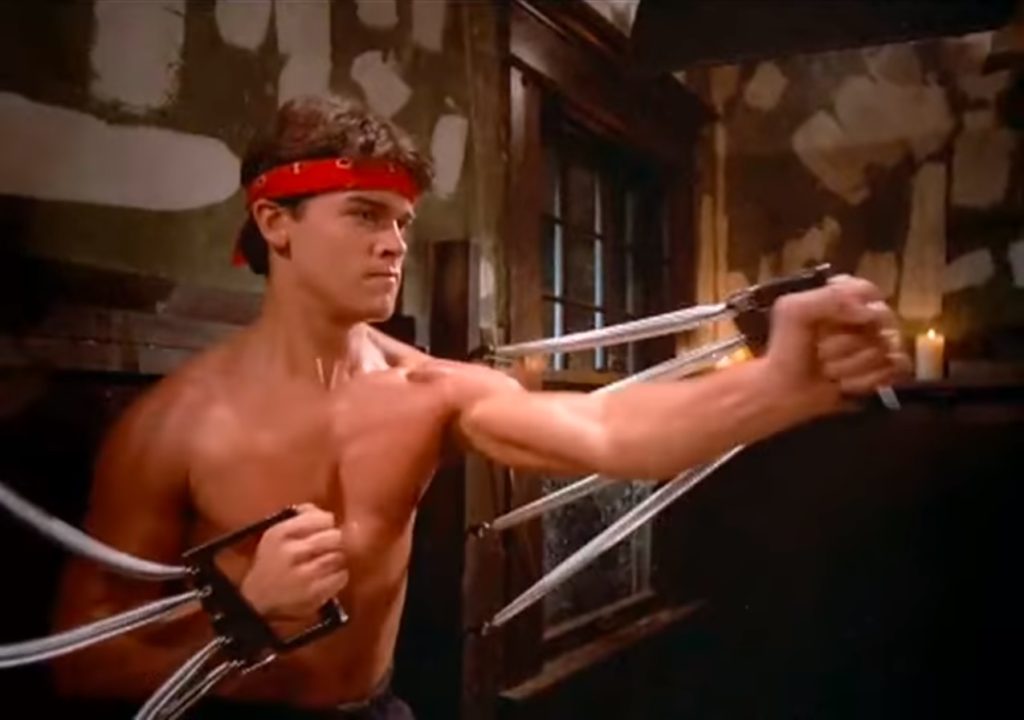
Let me give you another example using vocal warm-ups. When I think of vocal warm-ups, I think of my character, and I try to think of a song my character would like, and I sing that song aloud. Or I think of what kind of sounds my character would make. So, if my character is a quiet and deadly person, I guess what I’m trying to be is as quiet as possible in the words I say, and I’ll do my lines that way. If my character is a flamboyant person, I might walk around my trailer doing my line loudly and flamboyantly in different ways.
However, sometimes a warm-up may involve you doing something not related to your character but still be helpful, because the goal of an acting warm-up is relaxation. If you’ve ever had to do a speech in school or get up in front of a bunch of people you will know that instantly your adrenaline starts going. The same thing happens for actors whether you’re on a stage with 50 people watching you, or on a set with a camera and 20 people all waiting for you to start. Both are high stress situations, which cause you to tense up. So sometimes a good acting warm-up is almost like a massage in that it relaxes you.
This is another reason why I’ve changed my thinking in the past few years. I’ve started thinking of warm-ups as relaxation techniques. Relaxing me so that I’m not as self-conscious or worried about the audience or the camera. The warm-up relaxes me so I can get into a character, so I can clear my mind.
How can warm-up be both energizing and relaxing?
There are a couple of ways to think about this. Basically, the warm-up relaxes you from your nervousness so you can instead use your energy in a useful way. You can see an example of such a warm-up in the videos below. Matthew McConaughey’s warm-up was incorporated into a scene from The Wolf of Wall Street (2013); the first video shows part of that scene, and the second video shows Matthew McConaughey explaining why he does that warm-up and how it was incorporated into the scene.
Think about how good you feel after a massage. It’s very relaxing but you feel awake and energized from it because now the energy in your body – your calories – isn’t going to a fight or flight response so, therefore, that energy is going to your other mental processes, such as getting into character.
When you’re nervous, you might be doing a lot of fidgeting, rubbing your hands, pacing back and forth. What if, by using a warm-up, all those calories that you’re burning by doing that fidgeting and those nervous gestures could now be focused on getting into your character?
So, if you burn 200 calories pacing because your heart is racing, because you’re nervous, because you’re about to go on set, and the camera is there, and the directors is there, and there’s a famous person there . . . if you manage to do some exercises that get your mind off of that, and you stop pacing, and you can focus on your character, then all of a sudden those 200 calories are going to go to the physicality of your character. They are going to go into mentally running your lines. Those calories are going to go into you focusing on the performance, not on thinking about how people are going to think about you.
Are there situations where an actor doesn’t need warm-ups?
If we’re going to go back to the thought of acting being a muscle, then think about how often you exercise. If I’m acting on set every single day, playing the same character daily, over weeks and weeks, I might not need to warm up as much as someone who hasn’t been acting for a month. But notice that I said as much.
Warming up can always help you a little bit. Even if you’re in character, even if you know what you’re doing, we always have to remember that warm-ups aren’t just things that you do before you start. If you’re on set in a film, you might have to do the same scene six or seven times, and there might be 15 or 20 minutes between the takes because they’re getting different angles. What a great time to use warm-ups to keep you in the character.
For many years I was an actor who never used warm-ups but, over the past couple of years, I have been using warm-ups more and more, but subtly. Subtle, small actions. And I can tell you that I always feel better after doing them.
Ask 10 actors, and 5 of them will tell you that you don’t need to warm up, and five of them will tell you that you do. However, even the ones who tell you that you don’t need to, you’ll probably see them doing some light exercise 10 seconds before they have to jump on set, even if it’s just stomping their feet.
The last way I’ll answer the question of whether there are situations where you don’t need warm-ups is you lose nothing by doing something. So even if your warm-up is just flexing really quickly and then relaxing, that will help you.
Sounds like many things can be considered a warm-up. How do you define an acting warm-up?
An acting warm-up is any physical or mental activity that can be used to help you get into character or increase your energy. An acting warm-up can be physical, verbal, or mental/emotional.
Physical warm-ups are any kind of physical action you take. They can be as small as making a fist or flexing your biceps when no one’s looking to doing burpees and jumping up and down.
Again, a warm-up is anything that gets you into your character or increases your energy. For example, over the past year, I’ve been doing voices for a video game. Because I’m standing in a booth for 2, 3, or 4 hours, in between lines, while they’re going through them to see if I gave them the right performance, I’ve started doing punching and kicking in the air just to keep my blood flowing and my energy up.
There are also vocal warm-ups where you’re trying to use your voice in different ways. Think about humming and then making lots of different sounds. A classic one I remember from my theatre days was we would have to do the alphabet, and we would do every letter as one long exhale and then we do every letter again but to the rhythm of We Will Rock You.
I was also on a set where the director was really into doing warm-ups, so we would get together every time and do what were called Italian Runs. Those are when you run your lines in the scene as fast as possible with all the other actors in the scene.
Sometimes you could be warming up mentally. You could be sitting in a chair, mentally doing your lines, envisioning what’s about to happen in the scene, or putting yourself back into situations that get you into the emotional state. Those could be warm-ups, even though nobody sees or hears them.

An emotional warm-up can be, not necessarily to get into the emotion of the scene or your character but, to get all your emotions activated. Some emotional warm-ups can be done quietly where you just mentally prepare yourself to be sad by thinking of sad things. But another emotional warm-up, and one that I really love to do, is to run my lines with different emotions.
So, if I had a line that was, “Hey. Close that door. What are you doing?” I would run that angry, happy, sad, or any other emotion that I think will be challenging. That way, when I’m on set, I’ve already had the experience and the memory of performing with a variety of emotions, so I’m flexible in my performance.
What are some of your favourite warm-ups or warm-ups that you find yourself doing often?
Firstly, physically, I actually like to do lots of boxing in my trailer. Bootcamp-style stuff; punching in the air, kicking in the air, squats, and push-ups. I find that that kind of physicality just gets my adrenaline up and wakes me up to help me focus.
In terms of vocal exercises, I jump between a couple of things: one is doing Italian Runs (saying my lines at different speeds) and then doing, believe it or not, some of the stuff that I initially thought was ridiculous: making lots of weird funny noises, exhaling with my mouth in different positions.
In terms of mental warm-ups, I touched upon one, which is delivering my lines with different emotions (you can see more details about that exercise in the Acting Exercises You Can Do Alone article). Another mental or emotional warm-up that I like to do is I like to see if I can put myself into an emotion for 1 minute and then quickly change into another emotion for 1 minute. This is just a way to, for lack of a better term, get in touch with my emotions or be able to deliver emotions quickly.
Since people have different warm-up preferences, do you have any tips for someone who’s leading a group warm-up?
If you’re running a group or an acting class or some sort of team building class and you want to use acting warm-ups, how can you apply an acting warm-up in a way that’s going to be able to please all the people in the room? The answer is you cannot. No one acting warm up will be effective for everyone in the room.
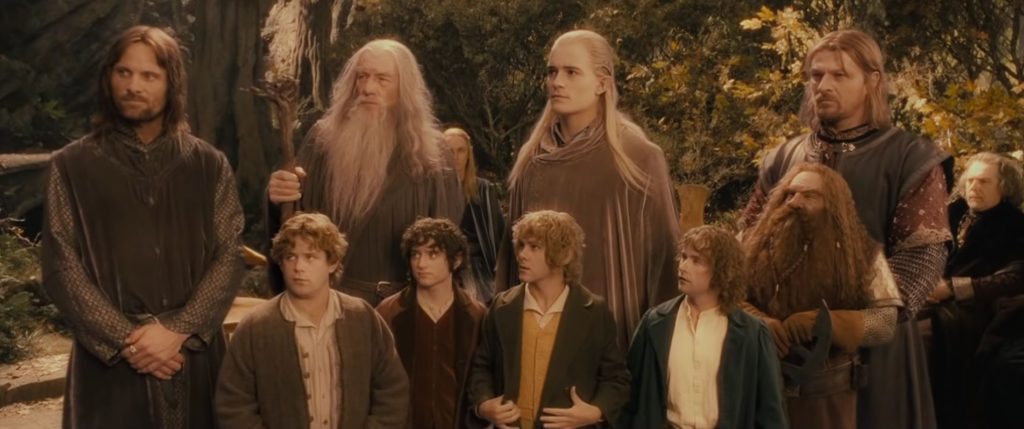
So, the secret is not finding the perfect warm-up. The secret is doing several different warm-ups that vary from ridiculous to serious. That way, you will capture everyone in the room in different ways.
Can someone find a certain acting warm-up at least a little helpful even if they think it’s total nonsense?
Yes, because, at the very least, even if you feel ridiculous doing it, it’ll be a physical warm-up.
If you’ve been sitting down for too long or waiting in your trailer for too long, that physical warm-up, that adrenaline, that blood flowing in your veins, will help you to wake up. Even if you’re going to be performing someone who’s low energy it takes a lot of energy to be low energy.
For example, playing someone who is super sleepy, you might think to yourself, “Well, maybe I’ll come in and be low energy for that performance.” The thing is, you’re not actually going to be super sleepy because you have to be listening carefully. You have to be thinking about your actions, you have to be thinking about the camera or where the audience is, and if you’re super sleepy you won’t be doing that.
Performing an emotion, whether it’s low energy or high energy, that you’re not actually feeling or that isn’t conducive to your situation requires concentration and focus. So, even if you’re playing someone who’s tired while you’re on set, that type of performance will require energy. That’s what I mean when I say that a warm-up can help you even if you’re playing a low-energy character.
As I mentioned before, I have had to participate in acting warm-ups that I thought were ridiculous, but they did help, thinking in retrospect, because at the very minimum they got my blood flowing, or they got my muscles in my mouth warmed up. And something that I’m coming to understand more and more is that, when you are nervous, when you are tense, you do tend to clench up your jaw and your face a lot, which is why so many actors all of a sudden speak with an “actor voice” or keep squishing their face together. It’s because of the stress causing the muscles in your face to clench, so even when I thought a warm-up or weird sound things were ridiculous, I realize now that, at the very least, they’re physical actions helped my facial muscles to relax so that I could look my part.
Summarizing thought
Acting warm-ups can be quite helpful. If you don’t like the ones you’re currently doing, you can find ones that are right for you. There are plenty out there.
